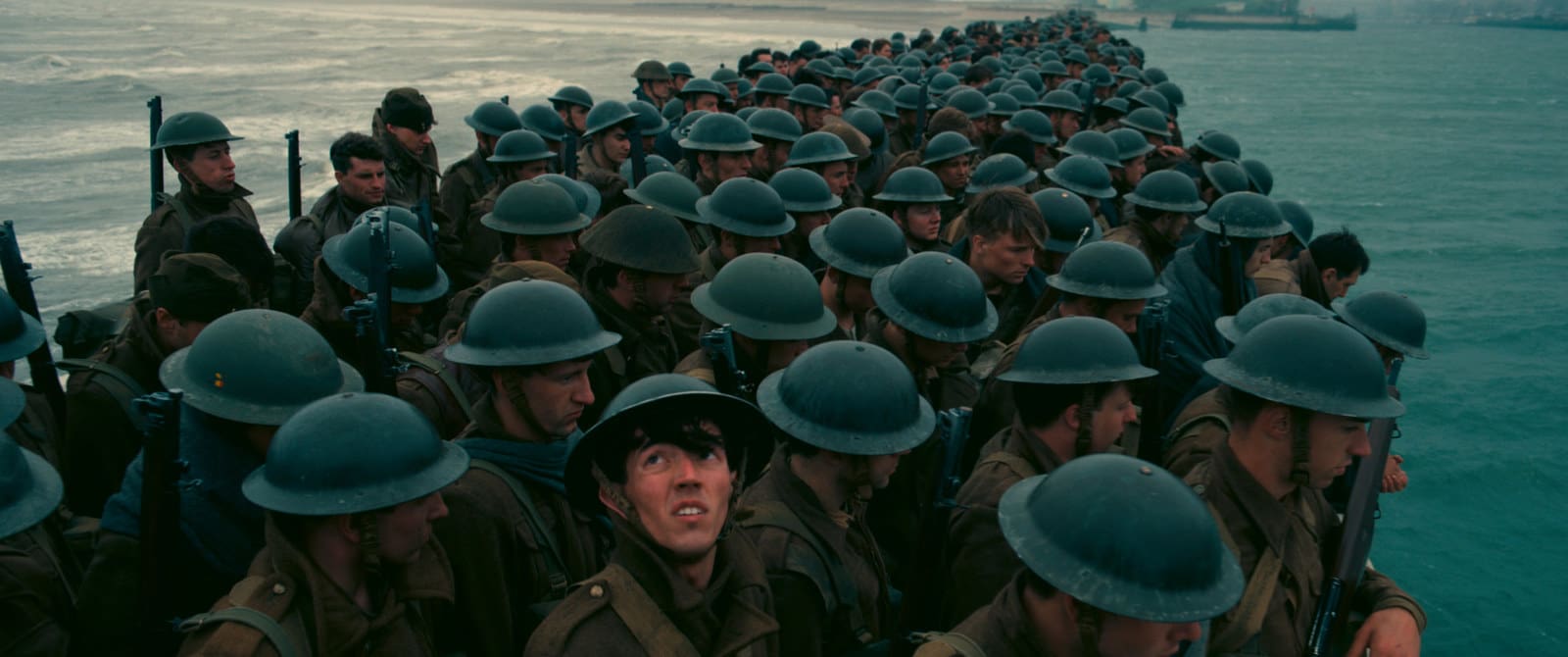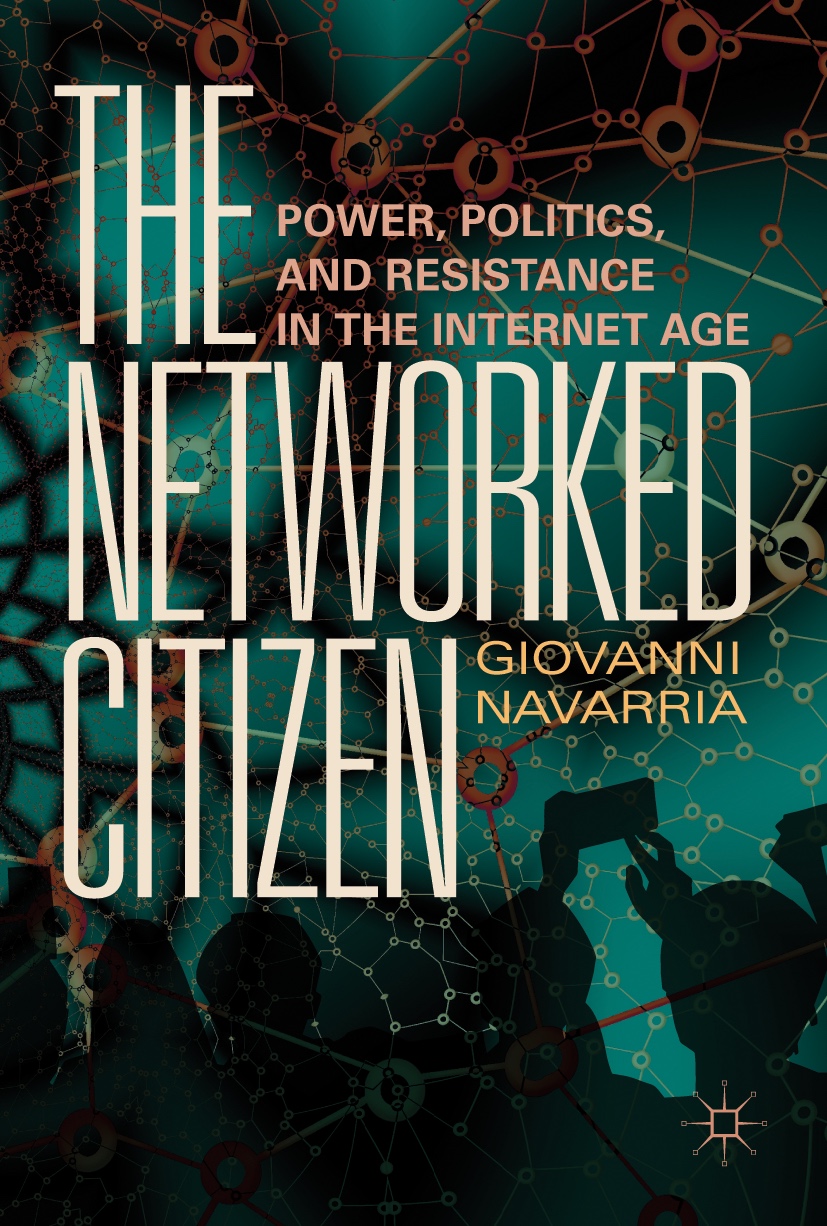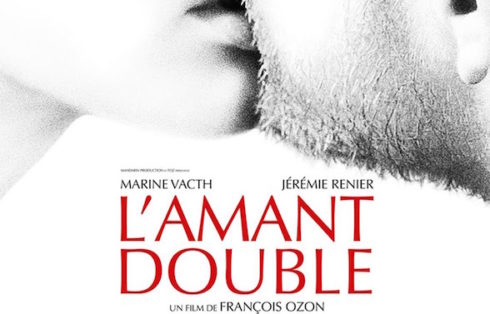Review: Dunkirk (***)
Should we love Christopher Nolan’s Dunkirk? No!
The film original aim might have been to be a subtle, understated epic about national brotherhood. It meant to show us the indomitable spirit of the people who later withstood the German bomb blitz, fought on the beaches and never surrendered, but there is not much of all of that in the whole movie. Instead, Dunkirk too often feels like an empty shell desperately looking for something vaguely dramatic to fill its void and justify its existence.
Christopher Nolan must be the envy of many of his colleagues. Several times, over the past decade, he has managed to climb the treacherous heights of Hollywood-land, all the way to the top, without ever losing his foothold or feeling the tiny bit of vertigo. With each new film, in fact, the London-born director seems to consolidate his aura as the beloved wunderkind of American cinema.
At least since 2007, he has directed and produced a stream of financial and (mostly) critical successes. Not only his Dark Knight Trilogy showered Warner Bros. with gold, bringing in almost $2.5 billion dollars from tickets sales worldwide, but even his forays in more untested waters have done pretty well at the box-office. Both the mind-bending Inception and the time-bending Interstellar did perform beyond expectations (for non-franchise movies). The former holds a 86% rating on Rotten Tomatoes (RT) and earned almost $900 millions worldwide; the latter, though less successful, still managed to return $675 millions, four times its reported budget and it still holds a more than respectable 71% score on RT.
Nolan’s movies seem to strike always the right cord with both critics and audiences. His latest work, Dunkirk, is no exception in this respect.
Before it opened, last month, many wondered if Nolan’s new gamble would pay off. The film’s chances to earn back its $100-million-dollar investment were never really in doubt, but how much more would it ultimately make to justify the high-cost of its production was anyone’s guess.
The economics of Hollywood are a heavily contested subject, often shrouded under a heavy curtain of myth and whispers. The golden rule of thumb most analysts follow is however rather simple: to turn a profit a film must bring in from the box office more than twice its original budget, or it might be written off as a loss by the Studios (whether the term “loss” is justified or outright “phony baloney net profit accounting” is an entirely different matter).
In its opening weekend, Nolan’s epic topped the US box office, with a respectable gross of more than $50 million. Four weeks later, it has already accumulated more than $390 million worldwide (and it has yet to open in Italy, China and Japan.) As far as profit goes, the film is already a success.
Critically, many would argue, Dunkirk was a winner long before it opened. The official release in July was preceded by rave reviews. A month later, the film still holds a remarkable 93% positive rating on Rotten Tomatoes and 94/100 on Metacritic.
But does the movie really deserve so much praise? Is Dunkirk a new epic masterpiece in the war-genre? Has the summer already given us the front-runner for the Oscars?
The short answer: not really, far from it in fact. Dunkirk is definitely a successful financial product; perhaps clever enough to win some awards (even the big ones). But from a purely cinematic perspective it fails to deliver on its promises, and it might ultimately leave some of its audience rather cold.
Of Pride and Resilience
At the centre of the film is the miraculous sea evacuation of over 330.000 Allied soldiers that gave the French city of Dunkirk its place in the History books.
The rescue carried out between May 26 and June 4, 1940 saved thousands of lives and was crucial in determining the continuation of the war effort, thus the conflict’s ultimate outcome.
It took place at a critical juncture. After several months of so-called phoney-war, in the early weeks of May 1940, the Germans and the Allied Forces had finally begun the real fighting. By the beginning of June, however, the war seemed already over.
The Reich Chancellery in Berlin was jubilant, while the Allies were on the brink of catastrophe. The Nazi controlled half of Europe and France was all but lost (it will capitulate on June 22). Meanwhile more than 330.000 soldiers (2/3 of which British) were stranded on the beach in Dunkirk, helplessly waiting to know their destiny (rescued, captured, or killed).
Britain was cornered and seemingly ready to discuss peace terms with the Reich (or so Hitler thought). In some quarters of the British High Command, the spectre of the Swastika replacing the Union Jack on top of Buckingham Palace was no longer so inconceivable.
The situation for the soldiers at Dunkirk was desperate. The Germans controlled the coast, the sea and most of the sky. For the Royal Navy a rescue operation meant risk losing most of its Destroyers and incur in major casualties (during the evacuation, of the 39 Destroyers the Navy engaged, 19 were damaged and 6 sunk).
For London, the best strategy was to approach the French harbour with a flotilla of over 800 little ships, which included pleasure crafts, ferries and other civilian vessels (mostly manned by Navy officers, with only a small proportion piloted by private citizens).
Contrary to the Royal Navy heavy Destroyers, the civilian fleet had the advantage of size and number: they could navigate the shallow waters and approach Dunkirk’s shores more easily; they also represented a more difficult target for the Reich’s artillery or its submarines.
The miraculous success of the rescue operation, turned a colossal defeat, into one of the proudest moments in British history. It galvanised the whole country to keep on fighting. On the day the army returned safely home, Winston Churchill delivered one of his most inspired speeches to the nation.
Defiantly, the British Prime Minister told his fellow citizens, the war was far from lost: “we shall go on to the end…We shall fight on the beaches, we shall fight on the landing grounds, we shall fight in the fields and in the streets, we shall fight in the hills; we shall never surrender…”
Churchill’s eloquence helped consolidate the myth of Dunkirk as a symbol of the British people indomitable resilience – not only the army, but the whole country, united, was invincible.
(Churchill’s speech)
Christopher Nolan’s film attempts to convey the same sense of pride and unyielding determination, but it does in subtle undertones, never hitting the high-note of Churchill’s rhetoric. And Nolan probably deserves praise for staying clear of hyper-nationalistic bombast (there is already too much of that in the real world).
Instead, we follow the story of the Dunkirk rescue through the eyes and actions of those who made it possible. The main characters are a few low-rank soldiers on the beach, an indomitable pilot in the sky, and the civilian crew of a small vessel engaged in the rescue.
The movie is all there, 106 minutes of non-linear narrative intersecting three distinct parts, overlapping with each other but happening at different times: one week (I: The Mole), one day (II: The Sea), one hour (III: The Air). Only at the end the three stories come together.
Never a moment of true pathos
Nolan gives us Dunkirk as both a place and a time in waiting. In the opening sequence of the film, the city appears almost empty.
Some Germans shoot at some British soldiers, some die, one escapes; we follow him through a barricade defended by French soldiers, and then to a beach where thousands of his fellow soldiers wait orderly in line for their turn to be rescued.
All are hoping to survive the next German’s attack. Life or death on the beach is a matter of chance, it depends on where the bullets or the bombs fall.
Already from this opening scene – so different for instance from that of Spielberg’ Saving Private Ryan – is clear that Dunkirk is not a typical war-movie. It aims to move onto a higher (at times quasi-metaphysical) plane of exploration.
Nolan, he has said it many times, is not interested in showing a classic war, as conflict between real foes. We barely see a Nazi insignia. The director tries to depict war instead as raw poetic suspense which is all about survival. War is always there, a lethal nemesis closing on us, silently and unseen, but ready to strike at any moment.
We never see platoons of soldiers locked in gruesome battle, instead the film is mostly about man versus the hostile vastness of nature: a small vessel, mainly alone, facing the immensity of the sea; a lonesome pilot scouting the never-ending sky in search of an elusive and deadly enemy; a handful of young soldiers running for their lives across an interminable strip of sand and water.
Despite Nolan’s intentions, however, the film never really delivers a moment of true pathos, never once we feel sorry or truly worried for the soldiers or any of the other anonymous characters.
Our lack of empathy does not certainly come from knowing beforehand how the story ends. It is more the result of Nolan’s script, in which beautiful scenes are more important than characters’ development.
The director’s clear aim is to be (almost) inconspicuous, he wants his 70mm camera to show us what Dunkirk looked and felt like for those who were there. Nolan crafts a film which is almost like a minimalist war documentary, but without the expected raw realism that defines the genre. This choice has serious dramatic consequences: the characters get lost in these scenes, while we are never really given a chance to feel close to them.
Take for instance, most of the scenes on the beach. At the centre of the action are a few soldiers repeatedly attempting to skip the queue and be on the next vessel to England. These are critical moments.
Some of these scenes show what at first sight might look like occasional incompetence (as when the soldiers try to cover fresh bullet holes on a boat with their hands, while the Germans are still shooting); others seem to tell us a story of unjustified discrimination (against a French soldier who pretends to be British).
In Nolan’s mind these scenes were a chance for us to see these young soldiers at their wits’ end, as inexperienced, scared and desperate, eager to survive at all cost. We are supposed to sympathise with them, alas, we never feel that way.
The problem is that most of these kinds of scenes in the movie feel all so very episodic. They are so loosely connected with each other, with so little for the viewer to get attached to, that even distinguishing the different actors becomes a daunting task.
With so little time to get to know them, the actors’ faces – all dressed the same, with the same build, hairstyle and colour – end up all looking alike.
Any hint of desperation we might occasionally feel is more likely to be artificially engineered by Hans Zimmer’s laud and dramatic score, than the story itself.
A score of unremarkable characters
In Part II (The Sea), the civilian crew on the small vessel led by Mr Dawson (Mark Rylance) is supposed to show us the moral high ground, the civic pride and fortitude of the common people.
Dawson is a decent man, a patriot who better than anyone else understands the tragedy of war. He lost his older son in the first week of fighting, yet he does not hate, he is not out there seeking revenge. He is out at sea to do the right thing: to bring those boys stranded at Dunkirk back home. Those soldiers on the beach are all his sons. He is accompanied on his journey by his younger son, Peter (Tom Glynn-Carney), and George Mills (Barry Keoghan) one of Peter’s friends.
We should love Mr Dawson, and yet there is something fundamentally wrong with his character that should make the viewer recoil more than once. Dawson’s understated moral determination makes him a stiff and – at times – awkward one dimensional character blinded by his mission.
Dawson is so adamant to accomplish his duty that he shows very little moral uncertainty when George is fatally wounded in an accident involving a shell-shocked soldier. Peter begs his father to turn the boat back and try to save George, but Mr Dawson knows that those boys on the beach cannot wait.
There is no time for tears or questions, or anger. George is a necessary casualty of war. The papers will make him a hero (as he wished), the people will remember his courage, even though he died a banal death – a scared pilot knocks him down and he bumps his head.
A young man’s death should be enough ground for us to feel emotionally involved, but it never happens, it all feels artificial. George is sacrificed for the greater good, while his life is easily brushed off, in an Ups-a-daisy kind of manner.
We don’t have much time to feel sorry for George, nor has the crew. The mission must continue. And it is all very ironic, because the pace of the film feels always unbearably sluggish.
Similarly, we don’t feel much sorry for Cillian Murphy’s shell-shocked pilot. He is the reason why George dies, but this is war, we are supposed to forgive him, very quickly as Mr Dawson does. But how can we? We barely know him, we have not been enough with him to understand him, to care for him or empathise with him.
Nolan never builds his characters to make us feel we know them. Thus, Murphy’s character never feels like one of the boys in Oliver Stone’s Platoon and certainly he is no Christopher Walken’s Nick Chevotarevich in The Deer Hunter. When Nick dies in Michael Cimino’s movie we feel pain, we cry. For Cillian Murphy’s unnamed character, we barely shrug.
There is no Alec Guinness’ Colonel Nicholson equivalent here either. Rylance’s Dawson burdened soul is not cut from the same cloth of Guinness’ character in the The Bridge on the River Kway. Kenneth Branagh’s Commander Bolton, the pier-master during the evacuation, is not unlike Dawson, just stiffer and more one-dimensional.
Bolton represents the British Navy’s pride and composure, while facing disaster. At regular intervals, he utters some high-sounding sentences, but his emotions never really resonate with us. When he looks up in the sky at a RAF airplane saving the day in one of the last scenes, Branagh’s contrived features might induce a laugh or two in the audience, rather than tears.
The only character vaguely worthy of our attention is Tom Hardy’s Farrier, a Royal Air Force Spitfire pilot who is both the soldiers’ guardian and our eye in the sky. He has some of the best moments in the film, including the flyover towards the end as the last boat is leaving Dunkirk, while Farrier’s fate – with no fuel left in the tank – is all but sealed. And yet, even Hardy is given very little to work with. He has only a handful of lines; his dogfights are very monotonous and repetitive. Once again, the suspense is more artificially induced by Nolan’s camera movements and Zimmer’s score than by the character’s challenges.
Unbalanced
Successful movies are usual build around the (more or less) balanced combination of three critical factors: entertainment (not necessarily of the fun kind); novelty; and spectacle.
This is indeed true for movies as diverse as James Cameron’s Avatar, The Wachowski Brothers’s The Matrix, Steven Spielberg’s Raiders of the Lost Ark, George Roy Hill’s Butch Cassidy and The Sundance Kid, Francis Ford Coppola’s The Godfather, or Stanley Kubrick’s 2001 Space Odyssey.
Throughout his career, Nolan has always stuck to this recipe: his movies must be fun or interesting to watch, and then to talk about later – think of Heath Ledger’s performance in The Dark Knight; his films always seems “new” or path-breaking, either in terms of story, as it was the case with Inception; or by setting a new tone – as Nolan did with the whole Dark Knight trilogy; visually speaking, his films always raise the bar of their predecessor – Inception and Interstellar were Nolan’s most daring projects in this respect.
Dunkirk scores rather low on all the three factors: there is no much entertainment (nothing really happens through its 106 min runtime). There is very little action going on. Not many bombs, barely a handful of bullets (mostly during the early scenes). There is not a drop of blood to be seen anywhere.
War through Nolan’s eyes is never gruesome. In fact, it all seems very chivalrous and, withdrawn. The dogfights between the RAF’ Spitfires and the Luftwaffe’s Messerschmitt, though beautifully shot, are more akin gallant one-to-one duels, then wild melee.
Very few planes appear on screen. I understand Nolan wanted to capture the feeling of the soldiers on the beach – they rarely saw airplanes – and the experience on the pilot in the cockpit, yet it should have been clearer that during the evacuation at least 300 aircrafts were lost in battles (145 British, 156 Germans). Never once we get a glimpse of that.
The only novelty about Dunkirk’s tone is the absence of it. Seen through the eyes of anonymous and uninteresting characters, the film is soporiferous at best. It doesn’t help that the script is almost devoid of any humour, in fact of any meaningful dialogue. And where there is dialogue, it is often filled with monotonous and understated lines about duty.
I certainly didn’t expect the absurd and beautiful cynicism of Kubrick’s Dr Strangelove, but a more nuanced dialogue would have given the characters some more depth, and the viewer something more to cling on emotionally.
The visual spectacle (mostly thanks to the IMAX camera shots from the sky) is perhaps the part where the movie scores highest, but it is nevertheless far below many of its peers. It does not have the visual realism of Gillo Pontecorvo’s The Battle of Algiers or even of the first 15 min of Steven Spielberg’s Saving Private Ryan. It certainly does not have the surrealistic and symbolic visionary of Francis Ford Coppola’s Apocalypse Now (there is nothing like the Ride of the Valkyries scene here). Never once, it reaches the mystic heights of Terrence Malick’s The Thin Red Line. And even the old classic Tora! Tora! Tora!, despite its problematic production and clichés, manages to convey a more captivating depiction of the tragedy of war.
Cinematic failure?
Dunkirk is certainly a successful financial operation. After all the film is on route to return a solid profit to its investors. And it would be hard for anyone to write it off as a total cinematic failure. Yet, Dunkirk is ultimately a disappointment: it has very little entertaining value, visually is (overall) modest (despite the use of 70mm IMAX camera); and it is far from path-breaking – it is definitely not an instant classic in the war-movies genre.
Is Dunkirk then worthy of the Oscar buzz already surrounding it? It’s doubtful at best, though it would not be entirely surprising if, come Awards season, the dramatic significance of the story might finally earn Christopher Nolan a love-shower of statues and placards, of the kind his résumé is still missing.
The film original aim might have been to be a subtle, understated epic about national brotherhood. It meant to show us the indomitable spirit of the people who later withstood the German bomb blitz, fought on the beaches and never surrendered, but there is not much of all of that in the whole movie. Instead, Dunkirk too often feels like an empty shell desperately looking for something vaguely dramatic to fill its void and justify its existence.










